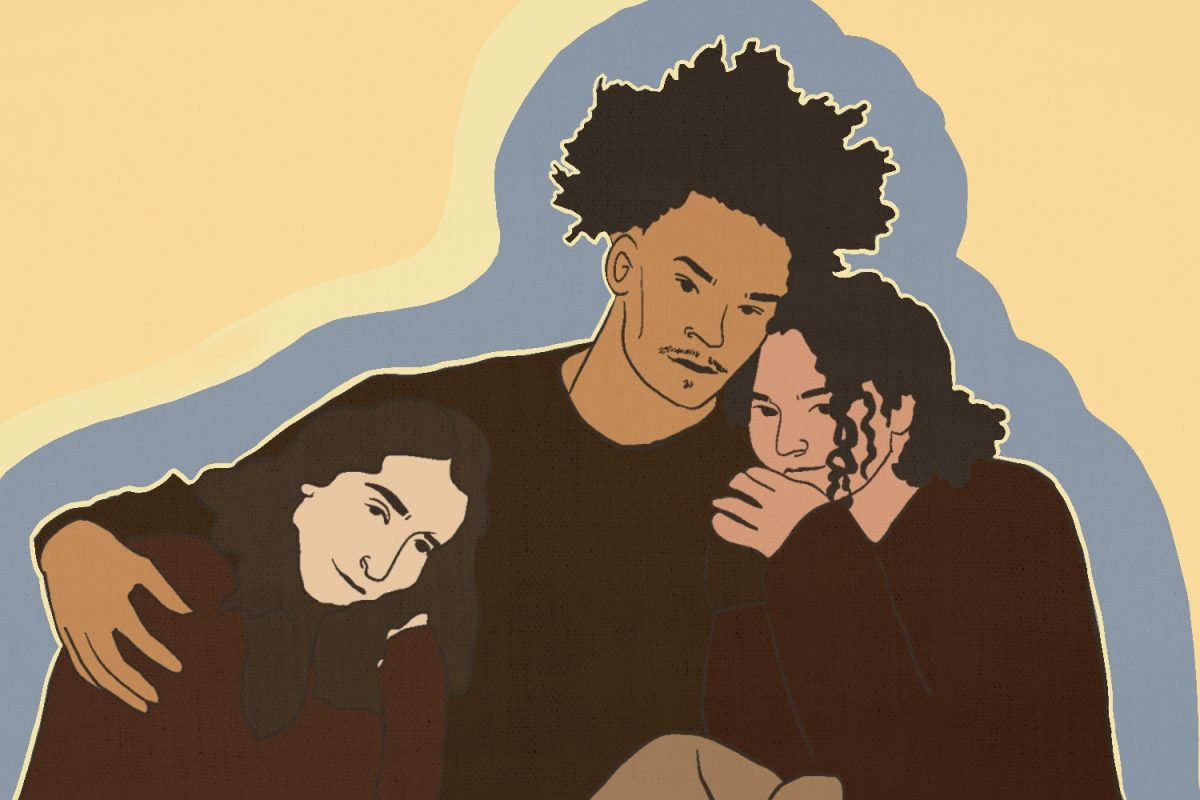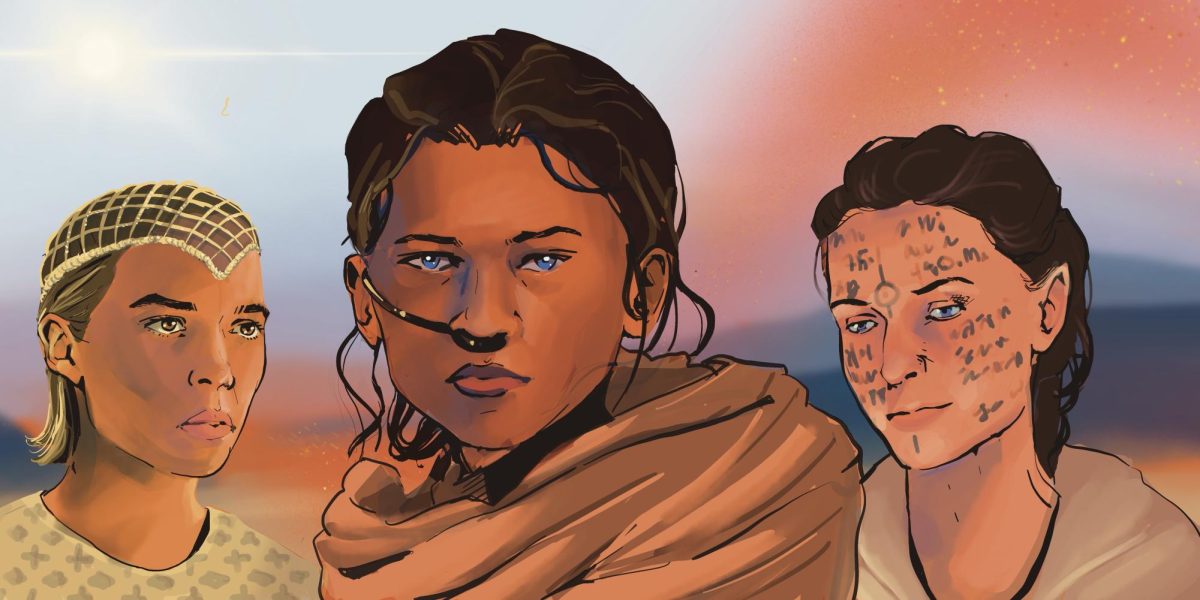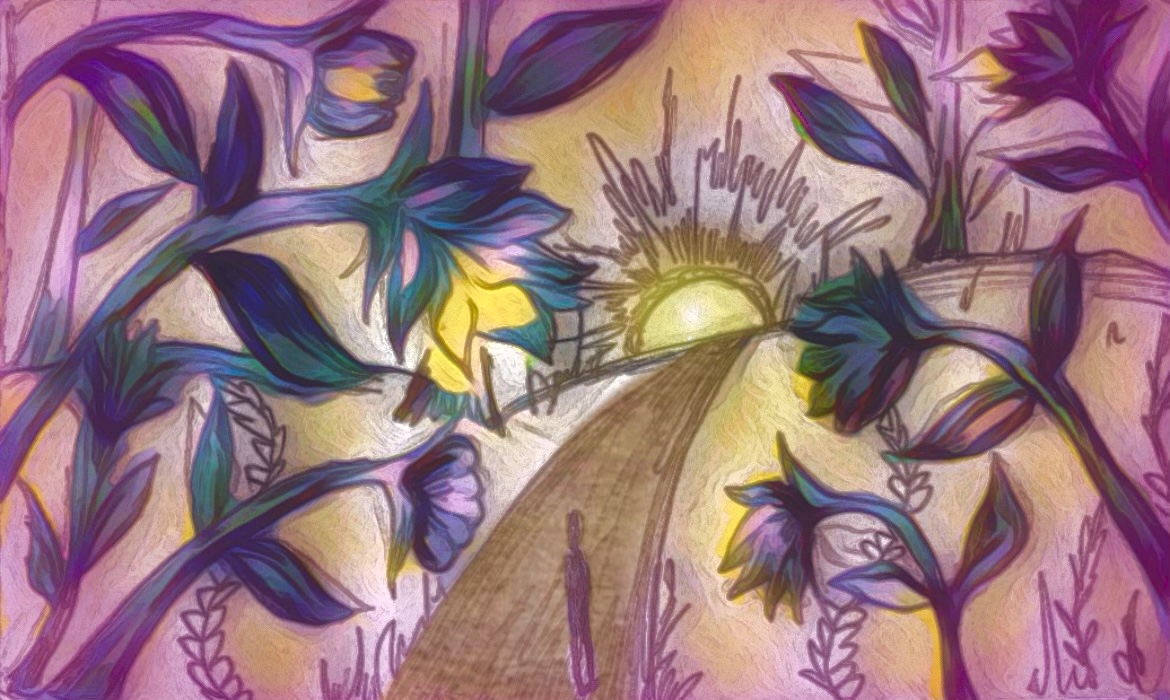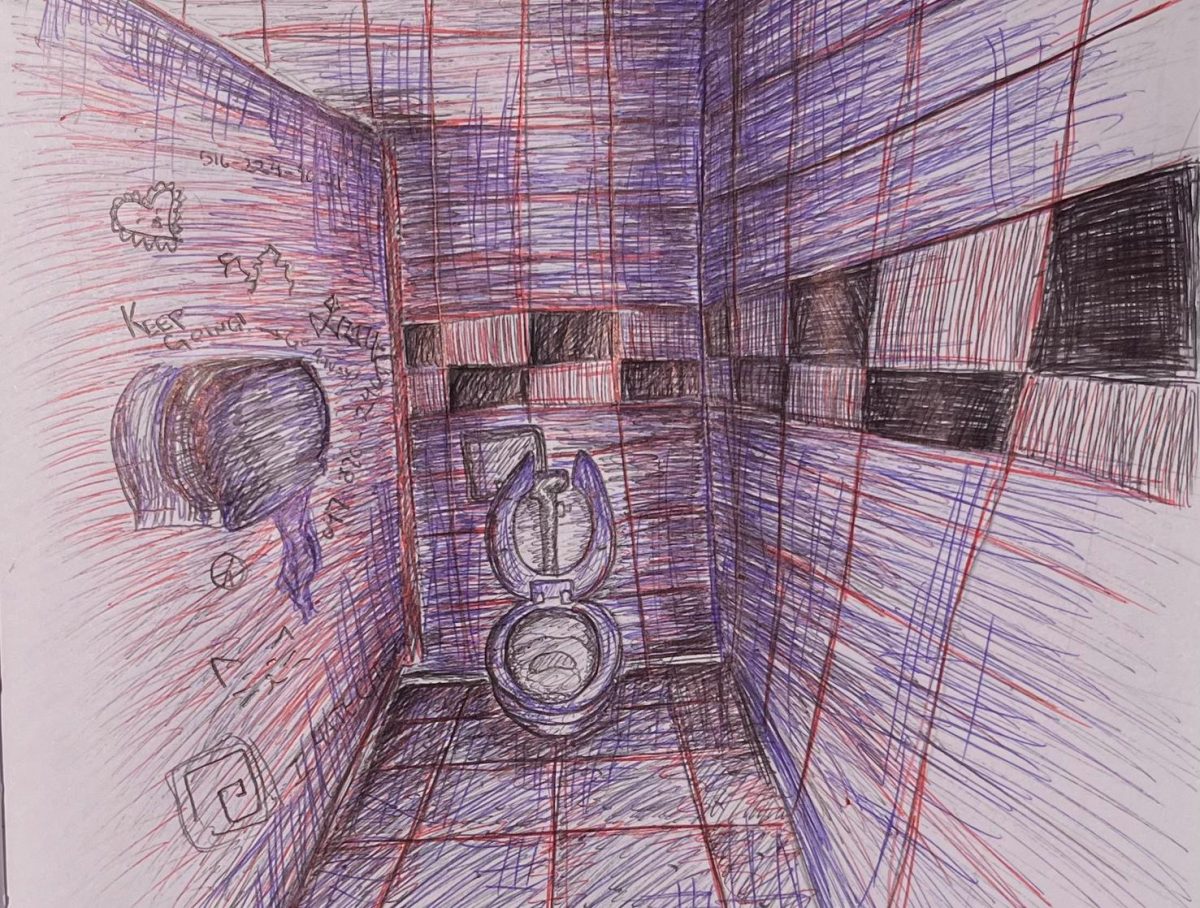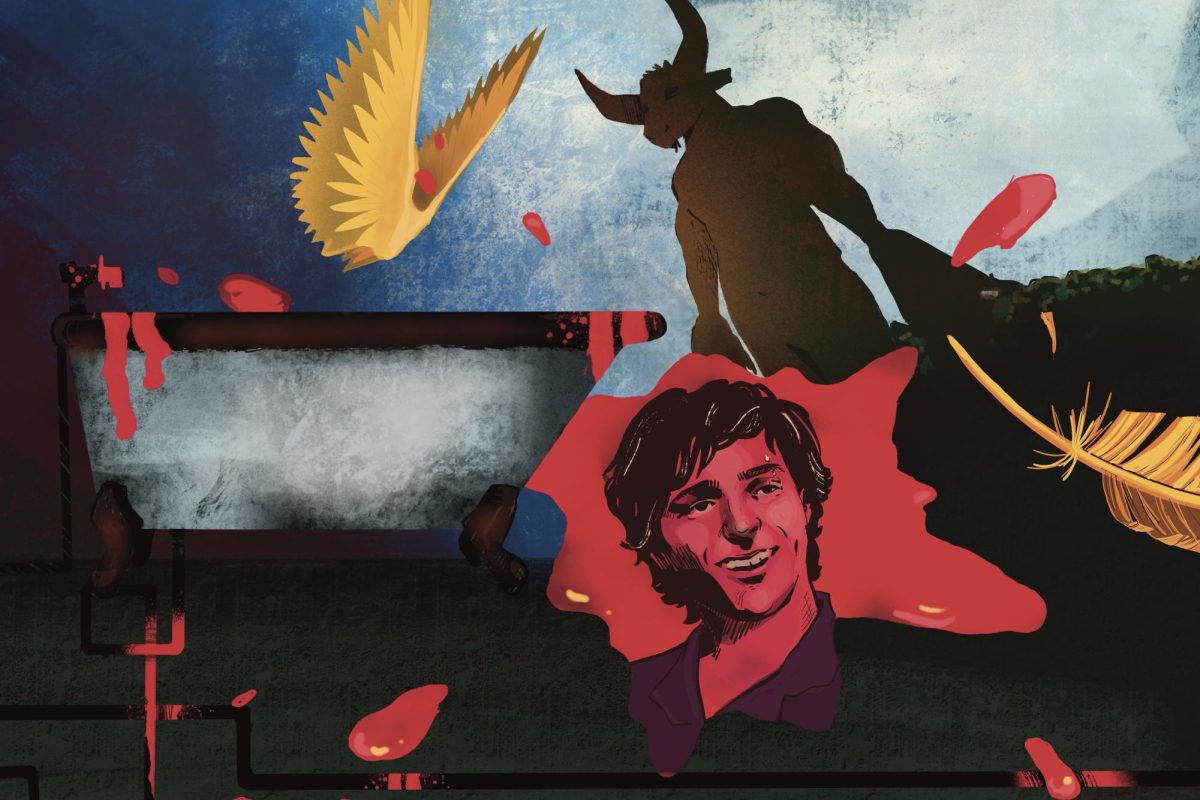Saturday night, February 26th, after a hot Medeski, Martin, and Wood show at the Higher Ground, I sat down to have a conversation with virtuoso innovative jazz drummer Billy Martin.
Vermont Cynic: So some of the crowd felt jilted by you guys not coming back out for an encore-was there a particular reason?
Billy Martin: Well the thing is, it was justified, they weren’t responding in a way that felt right to us. If they were just expecting us to come out, that’s bullshit. And I think they really were tired and drunk from partying all day. If the crowd responds in that right kind of way, of course we’d do an encore, but I don’t think you have to do it all the time, especially if they’re not asking for it.
VC: So is that how you guys generally work the encore, just from the vibe of the crowd?
BM: In general we give a little more, usually we’re pretty nice. But this time, it was just like- sorry. You know, what’s life without a little excitement (laughs)?
VC: Any new plans for Amulet [Billy’s record label]?
BM: We’re re-releasing the two old MMW records. One of them being Notes from the Underground, which was the first record we ever did, has been tipping around since we released it a long time ago on our own. It kind of felt the wrath of new distribution and label activity, making it so it was never really in the spotlight. So basically, I just thought we should revive it, remaster it, put a new track on it, and repackage it just to get it out there again, and the present has seemed like a good time to do that. And also getting Farmer’s Reserve [other record to be re-released] out there, since it’s never been in the stores.
VC: Is it weird going back to the old stuff, since those records are about 12, 13 years old?
BM: Yeah, Notes from the Underground is about 13 years old, and Farmer’s Reserve is probably around seven years old-it’s a little weird, but it wasn’t like I was sitting around and listening to the records all day. Really though, I’m more excited about the Farmer’s Reserve release, because it’s sort of more stream of conscious, and at the time we were playing more spontaneously composed pieces, and for me, there’s a certain kind of magic in that, and I want to share that. It’s not a typical groove record, but Notes from the Underground isn’t either, it’s got its own special thing.
VC: So aside from the music and the band just naturally getting tighter as a result of longevity, what else has changed for you since Notes from the Underground twelve years ago as a player?
BM: I’ve grown a lot; my style has developed a lot on the drums and percussion. And the band, we’ve all grown individually but also together-it’s really just an ongoing process whereby we want to continue to grow in both of those of ways, cause there’s no point in playing if you’re not growing.
Like right now we’re going through a little bit of that, figuring out what’s the next thing, and I always feel like playing as free as possible is the best motive. We’re starting to get a feeling that playing for larger crowds is not what we want to do, even though it’s great money. When you play for a huge audience a lot of stuff doesn’t transfer, so we want to stay in the more experimental mode and keep that spirit-which means smaller places, and maybe a little less cash.
VC: So how do you guys go about creating, do you guys all contribute ideas, or is it more singular?
BM: Yeah we all contribute-it’s a democracy, a collaborative thing, a collective. We get together sometimes to write, and what we do is sit in a room and play our instruments.
Then maybe we talk about it after, or just listen, or even just record it right there and see if it ends up being a tune. Sometimes we end up with little pieces of a tune that we develop more, and sometimes John may come in with something already worked out. For me, a lot of the time I’ll come in and say, ‘lets do an arrangement of this song,’ or I’ll have some input as to a feeling or something, and I’ll try to describe it, but it won’t be all written out. We all kind of bring in those things now and then, but in general most of it’s done by playing and jamming.
VC: You’ve always had a love for hip-hop-so how is it that you construct your break-beats and bring that element to MMW, and what hip-hop influences that?
BM: Growing up in New York City and New Jersey in the 70’s and 80’s when it was starting to happen-things with the radio stations, the clubs, the break dancing, and dj’s and all of that-I just loved it because I responded to it. I loved Grand Master Flash, LL Cool J, Cool Moe D, Roxanne Shante, Slick Rick, etc, there’s so many, Dougie Fresh, Public Enemy, you know. It was the rhythm and the dancing element, it grabbed me. But I was into the rock and roll thing too because that was on the radio, like Areosmith and the Police and Zeplin and all that, Sly Stone, James Brown, the Allman Brothers, Zappa, you know. I played along to all those records, but the hip-hop thing that was something really personal, something that I really wanted to check out. I’d go to clubs and dance, and there would be dj’s playing the latest hip-hop shit and I started feeling those rhythms and playing them on the drums. And it carried over later when I started playing with other musicians, in a situation where we were having a session and coming up with beats, and that was what I was doing-it was a part of my language. And with the band, John and Chris were really open to the kind of style I was playing, and at the time, in the early 90’s, a lot drummers weren’t hip to that yet. So I would just swing a beat with a little hip-hop style, and a little rock style, and they would play their jazz lines over that.
VC: So then explain the Illy-B Eats [Billy’s homemade break-beat record series] stuff…
BM: Well, what I’m doing now is what I’ve always wanted to do. I’m at the point where I have my little label, and I have a fan base, and I have this idea of having people collaborate with me, buying the record, and sending me something they’ve done with my beats-I thought that was just a cool thing to do. I’m really trying to do more with the Illy-B Eats stuff, the next one is going to be drum machine beats that inspired my drumming. One side will be just drum machines, different sounds, just old school stuff, and the other side is going to be the beats that I’m playing, live-they’re going be based off each other. So track one on one side is going to be the drum machine and track one on the other side is going to be me playing the beat live. So you could have side B and Side A, and go from the machine to me.
VC: Have you guys ever thought about making a record with an emcee?
BM: Yeah we’ll talk about it. Like we used to talk about playing with turntables way before it ever happened, but we never felt comfortable playing with a Dj until we first heard Logic, and Dj Olive and those guys, and then it happened. So it’s the same with an emcee, if we just find someone that fits we’ll do it. It really is a dream of mine, just to throw down and have someone rapping over my beats, like Busta Rhymes or something.
VC: So what was the concept for the last record, since it was an interesting change from Uninvisble, the one prior?
BM: Well, we don’t think concepts, but the thought was that we were going to use a producer, and he was going help us make decisions because we’ve done so many records with so many things, and we were sort of burnt out on asking each other ‘What do you want? Do you like this, is this good? Blah blah.’ Basically we just wanted to have someone say ‘I like this, lets do this,’ and that’s pretty much how it worked. We recorded for a week in our shack out in Brooklyn, and John King recorded us. Then he took the beats and the riffs that he liked and just basically composed-he took the improvisations that he liked and turned them into tunes that had a little more of a pop feel, and we sort of respected that given his history with the Beastie Boys and Beck.
VC: So that’s been the general thought process that’s gone into each record as far the idea of concept goes?
BM: It’s usually just like, ‘lets play and see what happens, and we’ll take it from there.’ The music will tell us, and take shape. But there have been records that we actually had new tunes that we’d been working out on the road.
VC: Now, you have a wide range of percussion instruments you play with onstage and experiment with, how did you get into the alternative percussion?
BM: In the mid-eighties I got really deeply into the Brazilian Samba to the point where I dropped the drum set for a year or two and learned the different percussion parts. Then that led me to checking out more African and Afro-Cuban based percussion, and so on. Then when I came back to the set I had a deeper understanding for all those different parts, as well as approach to sound. And that influenced my style a lot, not just the sounds and the parts, but also the phrases-Brazilian and African music have a totally different kind of phrasing, a really different rhythm.
So now I basically use all these different handmade instruments from Africa, Brazil, and China-but sometimes I’ll use a pipe that I’ve found like in the street because I dig the sound.
VC: So what was the original idea behind that label when you first started it in ’95?
BM: The original concept was for Amulet to be an outlet for me to get my percussion music out there; because around that time I realized that I’m not going to compose music and have a band play it, I’m going to improvise music, and compose collectively-I can write percussion music, so I figured this was my real contribution to the world, basically just to get some really interesting percussion stuff out there. There are a few bands I put together now and then, and I get a good recording together and release it, like the one that’s coming out in June with Socket [band]. It’s recorded from two nights at Tonic, four sets, a slightly different configuration than before, but with lots of the same players I’ve worked with before. It’s intense and sort of distorted, slightly symphonic, really cool, and kind of magical-I think I’m going to call it Medicine Wheel. It’s almost like we’re throwing spells out, and conjuring spirits.
VC: Anything else to look forward to?
BM: I also have a drum book coming out called Riddim that I’ve been working on for seven years that should debut this summer. The notation is non-western, and very simple, everyone gets it, and its all African rhythms I’ve collected with my interpretations of them. It’ll come packaged with a CD with my drumming because people need to hear it, since it’s an oral tradition and that’s how it’s supposed to be passed down, by ear. But I’m also going to release the master field recordings separately that I’m currently getting the rights too, since you have to hear the masters.












